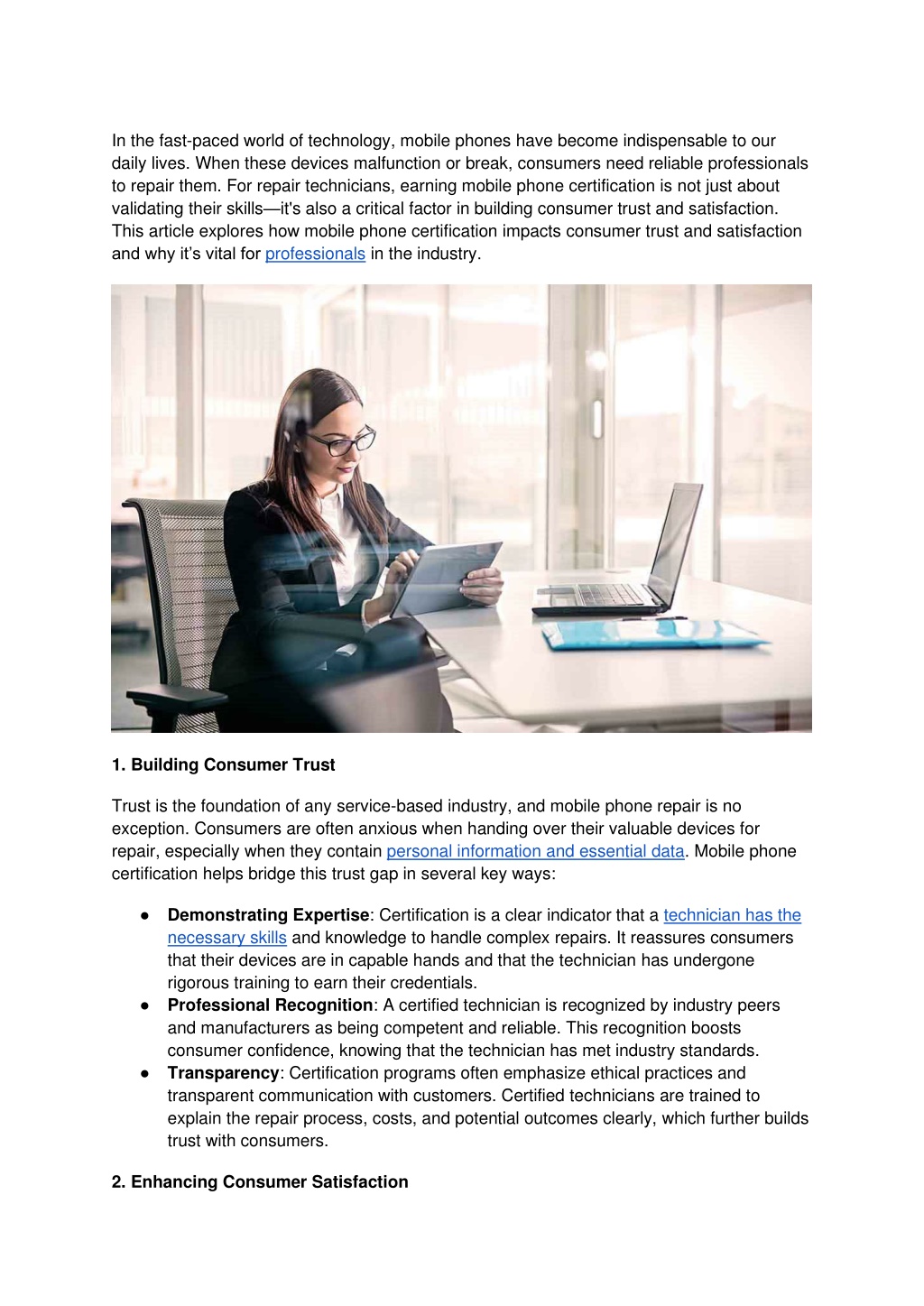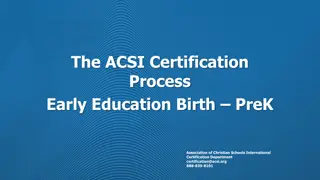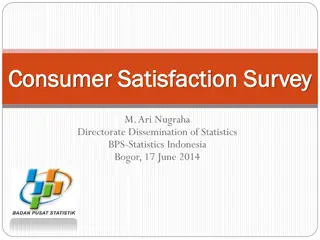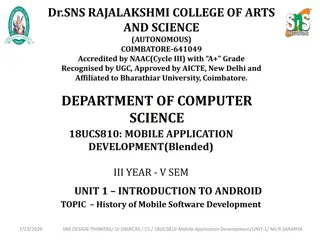
How Mobile Phone Certification Impacts Consumer Trust and Satisfaction
How Mobile Phone Certification Impacts Consumer Trust and Satisfaction
Download Presentation

Please find below an Image/Link to download the presentation.
The content on the website is provided AS IS for your information and personal use only. It may not be sold, licensed, or shared on other websites without obtaining consent from the author. Download presentation by click this link. If you encounter any issues during the download, it is possible that the publisher has removed the file from their server.
E N D
Presentation Transcript
In the fast-paced world of technology, mobile phones have become indispensable to our daily lives. When these devices malfunction or break, consumers need reliable professionals to repair them. For repair technicians, earning mobile phone certification is not just about validating their skills it's also a critical factor in building consumer trust and satisfaction. This article explores how mobile phone certification impacts consumer trust and satisfaction and why it s vital for professionals in the industry. 1. Building Consumer Trust Trust is the foundation of any service-based industry, and mobile phone repair is no exception. Consumers are often anxious when handing over their valuable devices for repair, especially when they contain personal information and essential data. Mobile phone certification helps bridge this trust gap in several key ways: Demonstrating Expertise: Certification is a clear indicator that a technician has the necessary skills and knowledge to handle complex repairs. It reassures consumers that their devices are in capable hands and that the technician has undergone rigorous training to earn their credentials. Professional Recognition: A certified technician is recognized by industry peers and manufacturers as being competent and reliable. This recognition boosts consumer confidence, knowing that the technician has met industry standards. Transparency: Certification programs often emphasize ethical practices and transparent communication with customers. Certified technicians are trained to explain the repair process, costs, and potential outcomes clearly, which further builds trust with consumers. 2. Enhancing Consumer Satisfaction
Beyond trust, consumer satisfaction is crucial for any business's success. Satisfied customers are more likely to return for future services and recommend the technician to others. Mobile phone certification contributes significantly to customer satisfaction in several ways: Quality Repairs: Certified technicians are equipped with the latest knowledge and skills to perform high-quality repairs. This leads to better outcomes, such as properly functioning devices and fewer repeat visits for the same issue, which directly impacts consumer satisfaction. Efficient Service: Certification programs train technicians in efficient diagnostic and repair techniques, reducing the time consumers spend waiting for their devices to be fixed. Quick, accurate service is a significant factor in consumer satisfaction. Guaranteed Standards: Many certification programs require technicians to adhere to standardized repair procedures, ensuring consistency and quality across different repair jobs. Consumers appreciate knowing that their devices will be repaired to a high standard, regardless of where they take them. 3. Increasing Customer Loyalty Customer loyalty is essential for long-term business success, and mobile phone certification plays a crucial role in fostering this loyalty. When consumers trust and are satisfied with a technician s service, they are more likely to return in the future and recommend the service to others. Repeat Business: Certified technicians often build a loyal customer base by consistently delivering high-quality repairs. Satisfied customers are more likely to return for future repairs or maintenance, knowing they can rely on the technician's expertise. Word-of-Mouth Referrals: Happy customers tend to share their positive experiences with friends and family. Certification can be a key selling point that encourages customers to recommend a technician s services to others, helping to grow the business through word-of-mouth referrals. Brand Reputation: For technicians working in or running repair businesses, certification enhances the brand's reputation. A certified repair shop is often seen as more trustworthy and reliable, which can attract new customers and retain existing ones. 4. Minimizing Consumer Risk One of the biggest concerns for consumers when choosing a repair service is the risk involved. There s always a fear that the repair might not be successful, or worse, that the device could be damaged further. Mobile phone certification helps minimize these risks, providing peace of mind to consumers: Assured Competence: Certification ensures that technicians have been thoroughly trained and tested in their field. Consumers can trust that the technician is competent and capable of handling their repair needs.
Reduced Errors: Certified technicians are less likely to make mistakes due to their in-depth training and adherence to standardized procedures. This reduces the risk of additional damage to the device or the need for follow-up repairs. Warranty and Guarantees: Some certification programs or repair shops offer warranties or guarantees on the repairs performed by certified technicians. This assurance further reduces consumer risk, as they know they re protected if something goes wrong. 5. Supporting Informed Decision-Making Consumers today are more informed and discerning than ever before. They research their options and prefer services that provide clear, honest information. Certification helps technicians provide the transparency and expertise consumers seek: Educating Customers: Certified technicians are trained to communicate effectively with customers, helping them understand the nature of the problem and the repair process. This transparency allows consumers to make informed decisions about their repairs. Clear Expectations: With a certified technician, consumers can expect clear and accurate estimates for both time and cost. This clarity helps prevent misunderstandings and builds trust, as customers know exactly what they re agreeing to. Ethical Practices: Certification programs often emphasize ethical practices, including honesty in diagnostics and pricing. Consumers appreciate working with technicians who are upfront about their services and who charge fair, transparent prices. 6. Adapting to Technological Advances The mobile phone industry is rapidly evolving, with new models and technologies emerging regularly. Certified technicians are better equipped to keep up with these changes, ensuring they can repair even the latest devices. This adaptability is crucial for maintaining consumer trust and satisfaction: Up-to-Date Knowledge: Certification programs often include ongoing education requirements, ensuring that technicians stay current with the latest industry developments. This means consumers can trust certified technicians to repair even the most modern devices effectively. Handling New Challenges: As mobile phones become more advanced, new repair challenges arise. Certified technicians are trained to handle these challenges, providing consumers with confidence that their devices will be repaired correctly. Conclusion Mobile phone certification is more than just a credential for repair technicians it s a key factor in building consumer trust and satisfaction. By demonstrating expertise, ensuring quality repairs, minimizing risks, and supporting informed decision-making, certification plays a crucial role in the success of mobile phone repair businesses. For consumers, choosing a certified technician means choosing peace of mind, quality service, and a trusted partner for
their mobile device needs. In an industry where trust and satisfaction are paramount, mobile phone certification is an invaluable asset for both technicians and consumers alike.






















